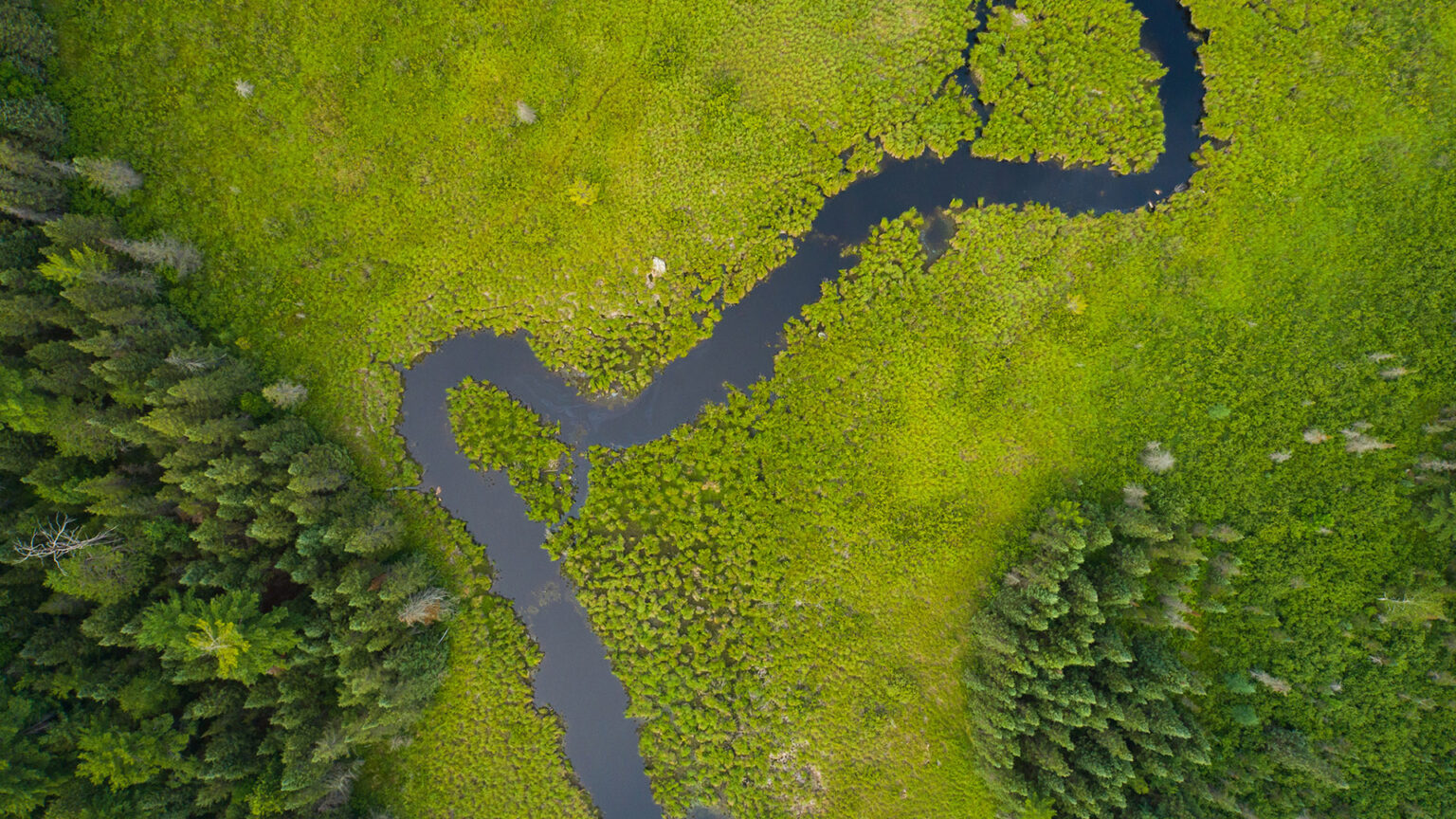Budget committee rejects funding for Wisconsin's largest conservation project
Republican lawmakers object to using funds from the state's Knowles-Nelson Stewardship Program to help finance the purchase of the property east of Rhinelander known as the Pelican River Forest.
Associated Press
April 18, 2023

The Pelican River Forest in north-central Wisconsin includes 68 miles of streams and 27,000 acres of forested wetlands. (Credit: Courtesy of Jay Brittain / The Conservation Fund)

MADISON, Wis. (AP) — Republicans on the Legislature’s budget committee voted April 18 to kill funding for the largest land conservation project in Wisconsin history, a move that came following concerns about the $15 million purchase of 56,000 acres of forest land that would have been open to both logging and recreational use.
Republican lawmakers objected in November to using $4 million from the state’s Knowles-Nelson Stewardship Program to help finance the purchase of the property east of Rhinelander in northern Wisconsin known as the Pelican River Forest. The rest of the funding for the conservation easement would come from a federal grant.
Efforts to address lawmakers’ concerns since objections were raised were unsuccessful, Sen. Mary Felzkowski, one of the Republicans who objected to the project, said April 18. She was among the 12 Republicans on the Legislature’s Joint Finance Committee who voted to kill the project, while all four Democrats voted to fund it.
Felzkowski raised concerns about what effect it would have on northern Wisconsin’s economy to remove that much land from future potential development. Republicans have long raised concerns about taking blocks of private land off the tax rolls through the state’s stewardship program.
“Enough is enough,” Felzkowski said April 18.
Felzkowski faulted advocates of the project for not having conversations about concerns raised by snowmobilers, local communities and others who would be affected by the project. Felzkowski accused the state Natural Resources Board of voting to approve the project despite concerns raised by local communities that wanted some of the land available for future development.
Republican Rep. Mark Born, co-chair of the budget committee, said the state Department of Natural Resources “should be ashamed for what they did on this.” He accused the agency of attempting to “shove this down the throat of locals” and pretending like there were no concerns about the project.
A spokesperson for the agency did not immediately respond to a request for comment in reaction to the committee’s actions and Born’s accusations.
Under the committee’s process, lawmakers can object to funding a project in secret. The objection triggers a meeting to review the project, but projects can be left in limbo and effectively killed with long delays before a meeting is called.
Felzkowski previously came forward as one of those who objected, and on April 18 committee co-chair Sen. Howard Marklein said he was another.
Democratic Rep. Evan Goyke said he was thankful for the discussion about the project in open, calling it “a little bit of sunshine.”
But Born discounted that, saying concerns about the project have been publicly reported for months.
“This wasn’t like I needed to have some secret code to find this information,” he said.
The Conservation Fund, a Virginia-based national land conservation group, bought the land that includes 16 parcels located mostly east of Rhinelander in Oneida County, but also in Forest and Langlade counties. The land straddles the Great Lakes and Mississippi River watersheds and is a link between the Oneida County Forest and Chequamegon-Nicolet National Forest.
The Conservation Fund said at the time it bought the land in 2021 that it will protect wildlife habitat while continuing sustainable timber harvesting as well as recreational uses such as hunting and fishing.
Under the state’s purchase plan, the land would have been left in an undeveloped state with public access for hunting, fishing, trapping and motorized recreation, such as snowmobiles and four-wheelers.
State officials have previously raised the possibility of launching a fundraising campaign or seeking landowner donations to come up with enough money to match the $10 million federal grant. The Conservation Fund has also said it may sell the property if the state DNR can’t secure funding for the project.
Clint Miller, central midwest regional director at The Conservation Fund, said the decision not to fund the project was disappointing, but pledged to continue working with the state to complete it.
 Passport
Passport











Follow Us